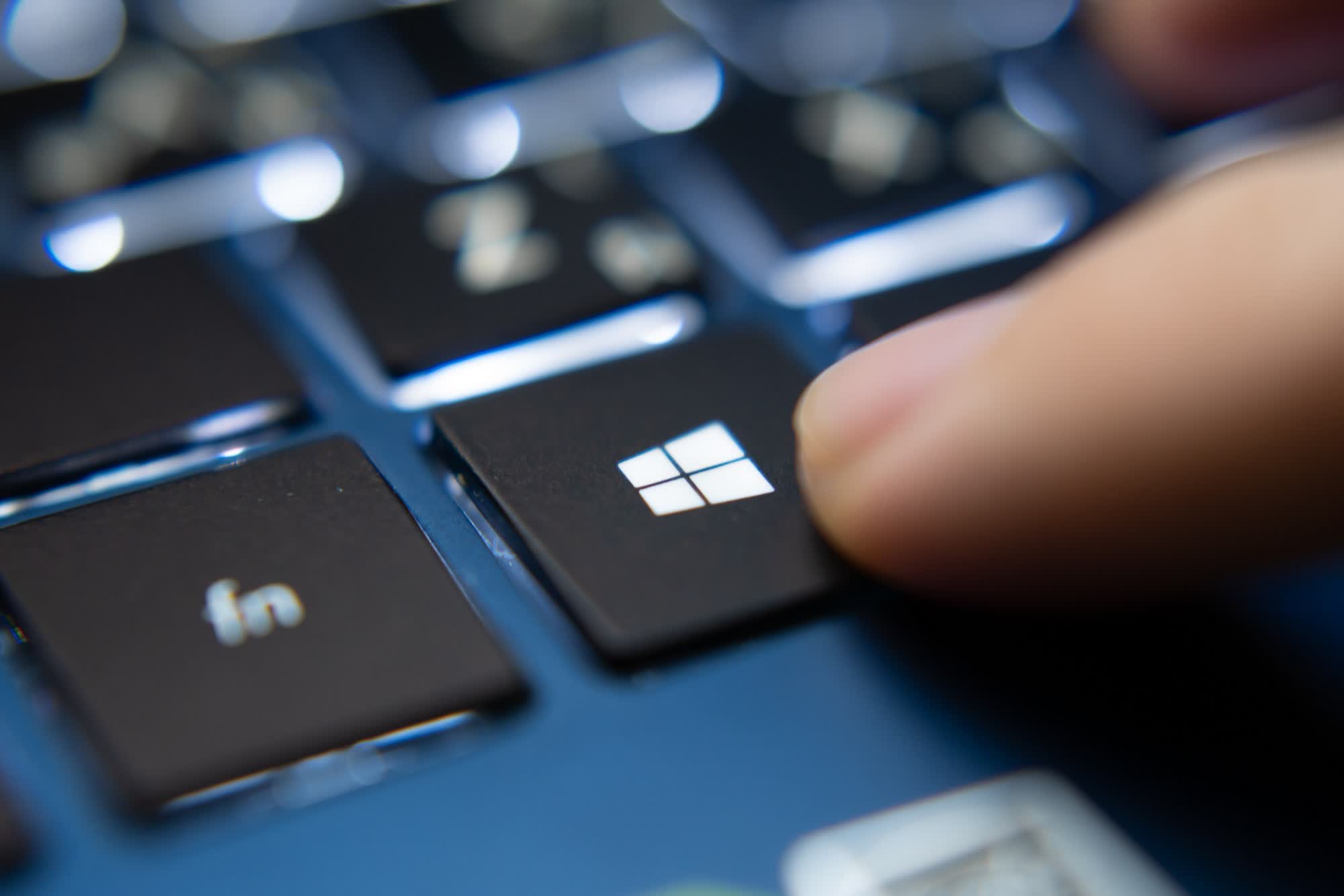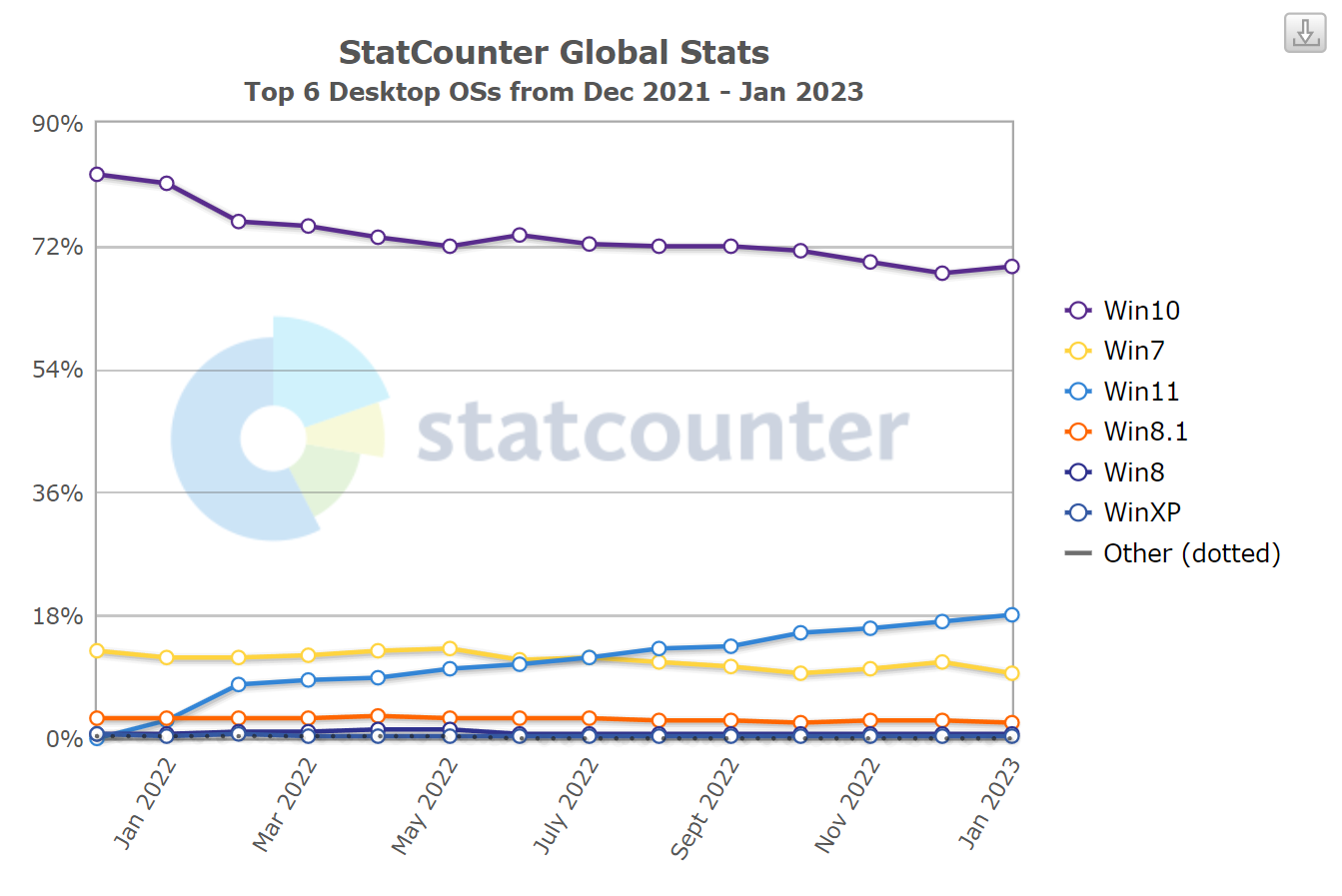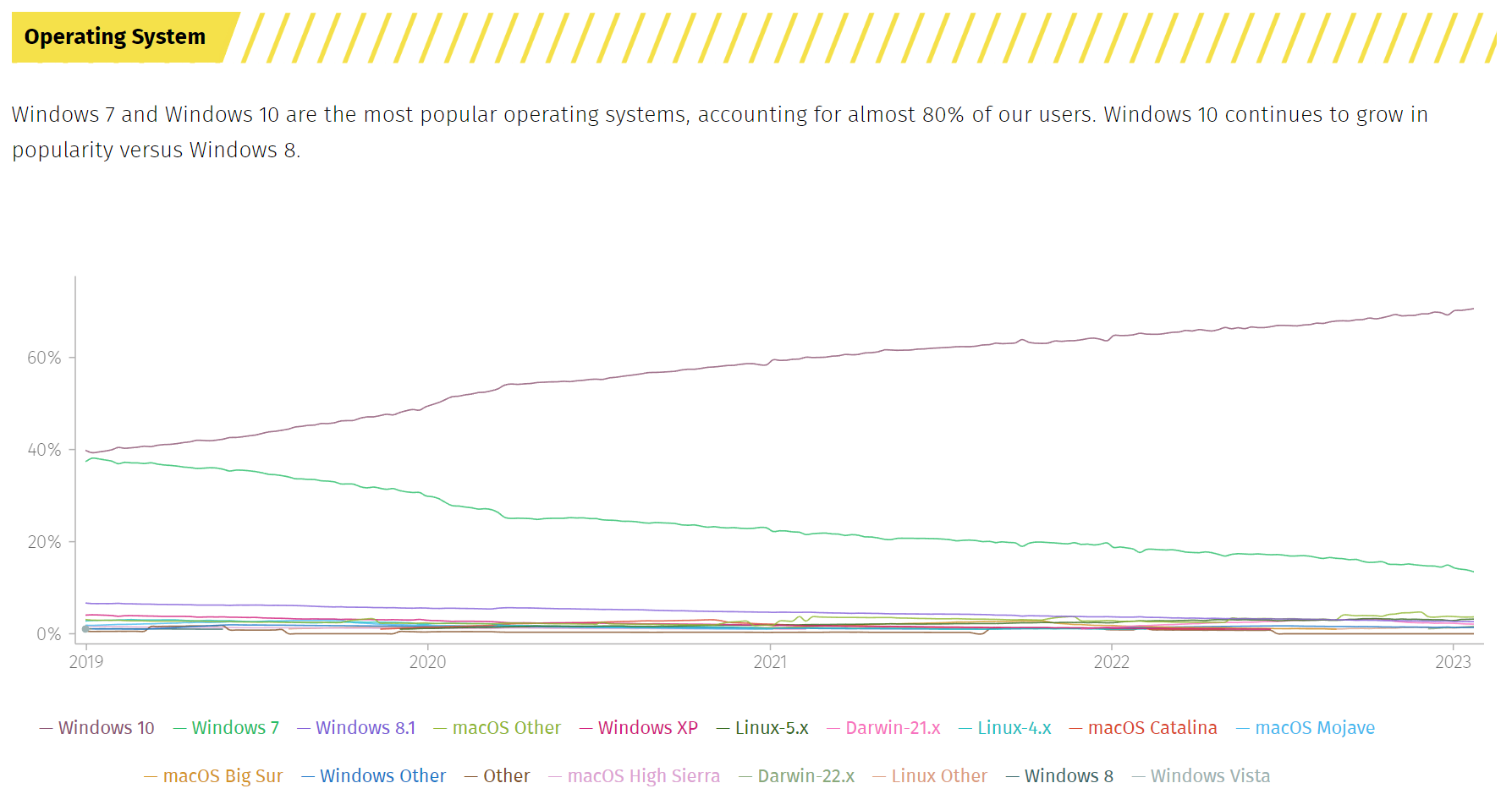In brief: Windows 11 remains a love-it-or-hate-it operating system, but more PC users are falling into the former camp. That doesn't mean Windows 10 is on its way out, of course, though Microsoft's recent actions illustrate how much it wants people to make the jump to the newer OS.
According to the latest Statcounter figures, Windows 11 reached its largest-ever global market share in January, hitting 18.1%. Windows 10, in contrast, has seen its share fall from 82.4% in December 2021 to 68.8% last month.
Statcounter's data means Windows 11 still is found on fewer than 1 out of 5 PCs, but the operating system is slowly yet surely adding more users every month. It's certainly popular among Steam survey participants; Valve's results from last month show Windows 11 passing the 30% user-share milestone as Windows 10's users fell by -1.96%.
This doesn't mean Windows 10 is on its way out. Not only is it still the most popular desktop OS by far, but Statcounter's figures also show it slightly increased user share last month, to 68.8%.
It's even better news for Windows 10 fans if one looks at Firefox's public data report, which uses a representative sample of the population from Firefox's release channel on the desktop. The browser's stats show that Windows 10 usage has not stopped increasing and reached a peak of 70.6% in January. Windows 11 doesn't even have its own listing; it's part of the 'Windows Other' category, which has a mere 1.3% share.
Courtesy of Firefox public data report
Elsewhere on Statcounter's report, Windows 7 remains the third most popular Windows OS with a 9.55% share, followed by Windows 8.1 (2.28%) and, incredibly, Windows XP with 0.45%. Looking at all desktop operating systems, Windows holds a 74.14% share. It's followed by Mac OS, which has a 15.3% share.
Windows doesn't hold the largest market share when it comes to all device operating systems. Its 29.2% share places it behind Android (42.99%) but in front of iOS (17.2%).
Last month brought news that Microsoft would stop directly issuing licenses for Windows 10 Home, Pro, and Workstation from January 31, 2023, in an attempt to push more users to Windows 11. However, the company emphasized that Windows 10 will continue receiving security updates protecting PCs from viruses, spyware, and other malware until October 14, 2025.


